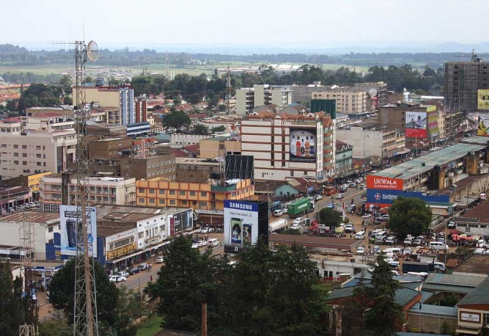
Eldoret is the only town in Kenya which was not founded on British influence.
And while other towns developed around the Uganda Railway, Eldoret morphed from South African farmers running way from British colonialism!
While the life of early Kenyan towns were lit up by the emergence of dukas from Indian Coolies who had come to construct the railway, the fifth largest town in the country emerged around the Boer farmers, their mud huts and wheat farms, but also a bar called the Rat Pit (which had no door), and the Standard Bank of South Africa which was another matope and mabati affair in 1912.
Standard Chartered, Eldoret branch now stands on the spot previously occupied by Standard Bank, where a safe fell from an ox-cart and could not be lifted, and so, JM Shaw, the branch manager, decided to build the aforementioned bank around it!
What is today Eldoret town was a number as colonial administrators then named places after farm numbers. Eldoret was farm number 64, representing the 64 miles from the town to the Kibigori station of the Uganda Railway.
Little wonder, there is today the 64 Stadium, 64 Secondary School and 64 Resort and Sporting Club!
This naming problem saw surrounding areas later taking on the names of popular mzungus living in the area: Kabarnet after Mr Burnett, the famous missionary, Kapropita, was what the locals corrupted from Corporal Peter, while Iten was Hill Ten!
The Boers left South Africa following the Second Anglo-Boer War that lasted 14 years to 1902, when the Boer republics of Transvaal and Orange Free State were annexed by the British.
As Brian du Toit informs us in Boers in East Africa: Ethnicity and Identity, these Boers were in three groups with three diverse destinations; the first went to Argentina, the second to American southwest and the third to East Africa.
“The Boers had a tradition of trekking,” writes Du Toit. “ Boer society was born on the frontiers of white settlement and on the outskirts of civilisation. As members of a frontier society, they always had a hinterland, open spaces to conquer, territory to occupy,” he notes.
The W.J. van Breda brothers were the first to arrive in 1903 at the place whose name was fleshed from the Maasai word, ‘Eldore,’ meaning ‘stony river’ in reference to Sosiani River.
The fearless Meneer van Resberg led another expedition in 1907 as more Boers arrived with their ploughs, wagons, cattle and sheep.
The Boers picked Uasin Gishu as it resembled the Kopjes in South Africa. Kopje is a small hill on a flat area, and this place which borrowed its name from the Ilwasin Kishu clan of the Maasai who dominated it, was just the place where Boer women would give birth in ‘peace and space.’
Boer means ‘farmer’ and the van Bredas erected a mud hut in Uasin Gishu and began growing wheat, setting the farming legacy for which Uasin Gishu is famed.
Others like the Cecil Hoey family, the first mzungus in Trans-Nzoia, felled trees to make river crossings named Hoey’s Bridge, now renamed Moi’s Bridge. These Boers from Transvaal (meaning across the Vaal) also influenced the naming of Trans-Nzoia and Trans-Mara!
Did you know the name Eldoret was suggested by Sir Percy Girourd, the Governor of British East Africa in 1911? Refusing that the town with few dukas, the District Commissioner’s house and a bar be named after his not-so-easy to pronounce name, he suggested that a ‘t’ be added to Eldore!
The Boer presence in Eldoret dwindled after the British granted internal rule to the Transvaal and Orange Free, State besides the Secretary of State, Lord Crewe, introducing cash requirements for immigrants coming to Kenya.
 The Standard Group Plc is a multi-media organization with investments in media
platforms spanning newspaper print
operations, television, radio broadcasting, digital and online services. The
Standard Group is recognized as a
leading multi-media house in Kenya with a key influence in matters of national and
international interest.
The Standard Group Plc is a multi-media organization with investments in media
platforms spanning newspaper print
operations, television, radio broadcasting, digital and online services. The
Standard Group is recognized as a
leading multi-media house in Kenya with a key influence in matters of national and
international interest.
